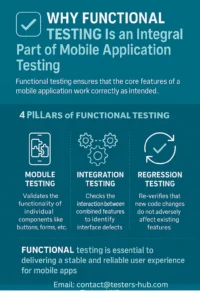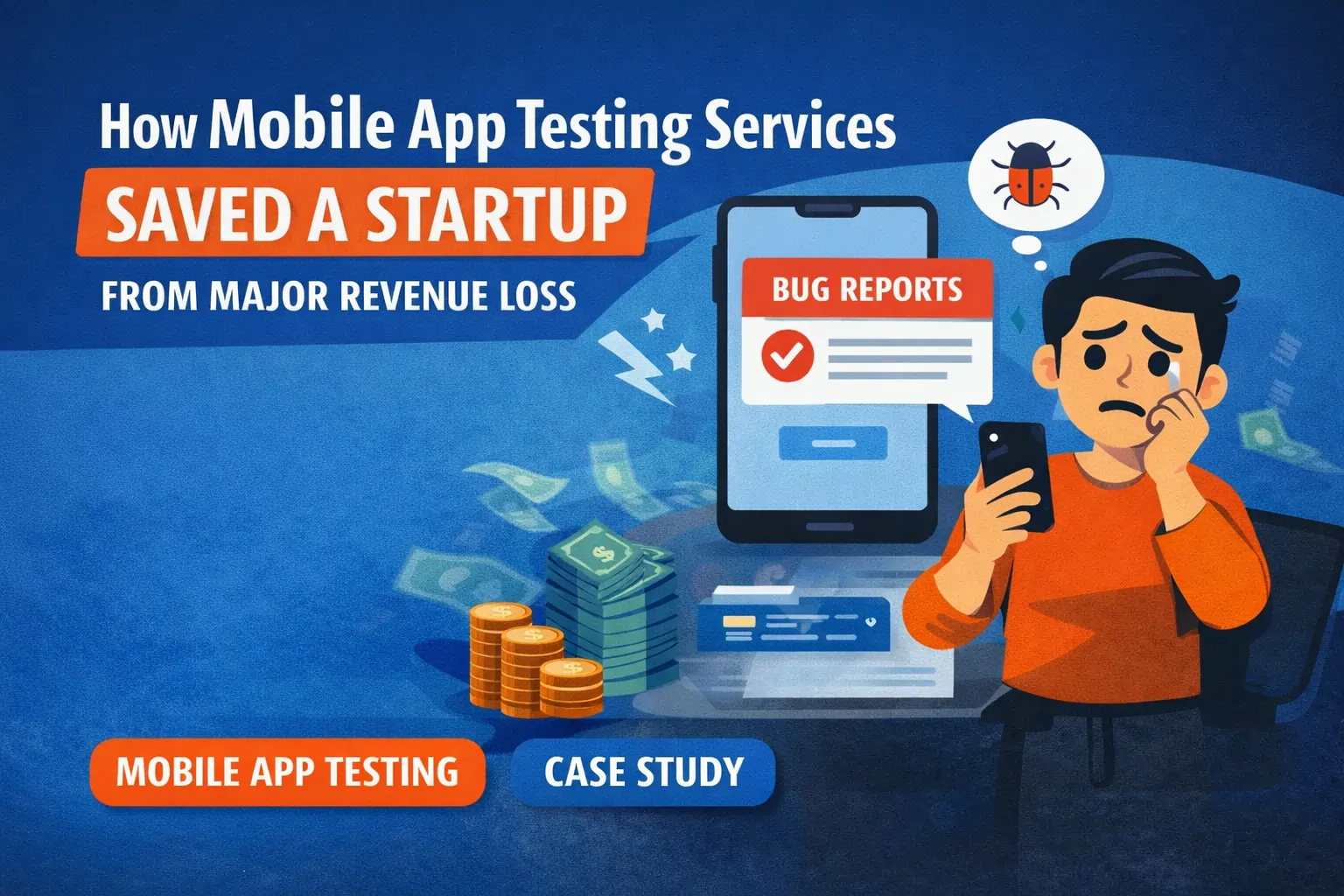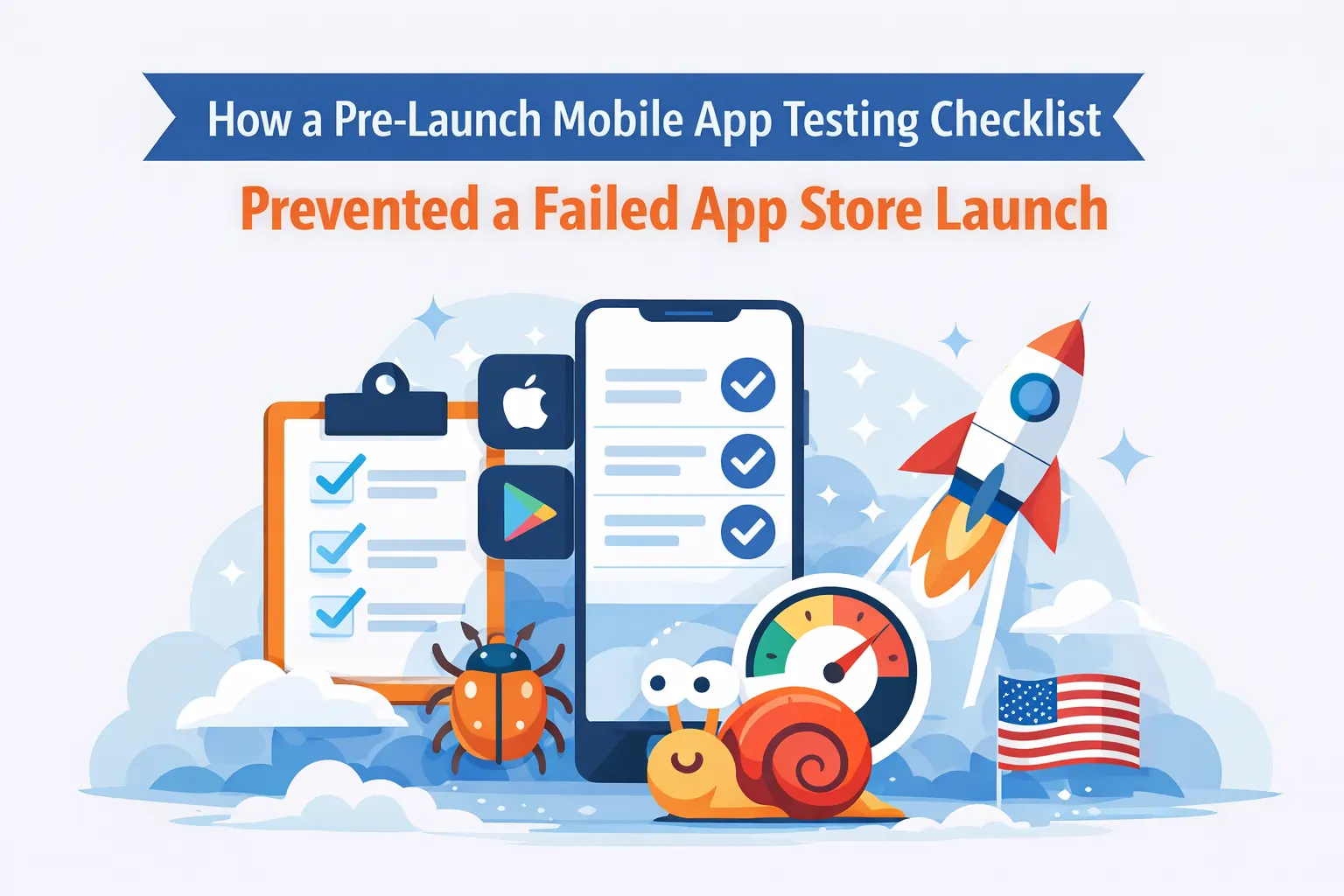Why Functional Testing is an Integral Part of the mobile application Testing?
A mobile app can look stunning, load quickly, and even rank high in stores. But if the “Login” button doesn’t work, if a cart won’t check out, or if payment fails midway, all those efforts collapse. Functionality is the backbone of mobile apps. Without it, nothing else matters.
This is why functional testing is considered the cornerstone of mobile QA. It validates that every feature, whether small or complex, performs its intended job. Skipping it is like opening a store where the cash register doesn’t work.
👉 Looking for reliable functional QA?
Module Testing
Every app is made up of smaller building blocks, or modules. These could be login pages, search bars, filters, or push notifications. If even one of these fails, the user experience crumbles.
📱 Scenario: In a food delivery app, the “Add Extra Toppings” option may work perfectly on its own. But if it hasn’t been tested thoroughly, it could allow duplicate toppings or fail to update the cart total—small issues that frustrate users.
Module testing isolates these features and verifies them independently. By validating modules early, teams prevent bigger failures later when modules interact. It’s the first checkpoint where reliability begins.
Integration Testing
Once modules are validated, the next challenge is how they work together. Even if each component performs correctly on its own, combining them often creates new issues.
📱 Scenario: In a ticket-booking app, the seat selection module and the payment gateway might both function independently. But if integration isn’t tested, users may pay for tickets without receiving confirmation. This not only ruins trust but also creates customer service headaches.
Integration testing ensures these pieces interact seamlessly. It’s about confirming that data flows correctly between modules and that no functionality breaks when they are combined. Done well, integration testing prevents costly errors from reaching production.
System Testing
System testing takes the bigger picture into account. Here, testers examine the entire app in its intended environment: different devices, operating systems, and network conditions.
📱 Scenario: A music streaming app may work smoothly in a lab but crash on specific Android models or under weak 4G signals. Without system testing, these issues reach users, leading to poor reviews and rapid uninstalls.
This layer of functional testing ensures that the app performs as expected in real-world conditions. For Android in particular—with thousands of devices and OS versions—system testing is essential to avoid fragmentation risks.
Regression Testing
Mobile apps are rarely static. Updates add features, security patches, or UI changes. But with every change comes the risk of breaking something that previously worked.
📱 Scenario: A finance app introduces a new feature allowing guest logins. Without regression testing, this update might disrupt two-factor authentication for existing users. A seemingly small addition can undermine trust if old features suddenly fail.
Regression testing provides a safety net. It revalidates existing functions after every update to ensure stability across releases. Regular regression cycles not only protect user trust but also reduce the cost of emergency fixes.
Why Testers HUB for Functional Testing?
At Testers HUB, functional testing goes beyond checking boxes. We focus on ensuring that every function aligns with your business goals.
- Clear reporting – Every issue is documented with steps, screenshots, and videos.
- Fast onboarding – A dedicated team is assigned as soon as requirements are shared.
- Global expertise – We’ve served clients in the USA, UK, Canada, UAE, and Singapore, adapting to diverse compliance and performance needs.
- Regression focus – Updates are tested thoroughly to ensure no hidden bugs slip through.
- Independent QA – As a testing-only provider, Testers HUB offers unbiased validation.
👉 Want a QA partner you can rely on?
Functional Testing as ROI Protection
Functional testing isn’t just about quality assurance—it’s about protecting investment. A single malfunction at launch can:
- Trigger negative app store reviews.
- Increase churn within days.
- Lead to expensive emergency fixes.
- Damage brand trust.
On the other hand, apps with stable functionality:
- Build user confidence from the first use.
- Reduce long-term maintenance costs.
- Scale smoothly as features expand.
Seen this way, functional testing is not a cost center—it’s business insurance.
Best Practices for Functional Testing
To maximize results, businesses should:
- Begin functional testing early, not just before release.
- Validate both positive and negative scenarios (valid/invalid inputs).
- Cover real devices, not just emulators.
- Automate regression tests for repeatability and speed.
- Combine functional checks with usability and performance validation for a holistic QA approach.
Conclusion
Functional testing is the most critical layer of mobile QA. From validating modules to testing integrations, running system checks, and ensuring regression stability, it confirms that your app truly works where it matters most—on user devices.
While many providers can run test scripts, Testers HUB stands out as the QA partner of choice in 2025. With real-device labs, fast onboarding, and deep experience across industries, Testers HUB ensures your app launches with confidence and grows with stability.
👉 Ready to strengthen your mobile app?
Frequently Asked Questions (FAQ)
Q1. Can functional testing improve app store ratings?
Yes. Stable, reliable apps receive fewer negative reviews and higher retention, directly influencing app store ratings.
Q2. How early should functional testing begin?
It should start at the module level during development, not just at the end before release.
Q3. Is regression testing always required?
Yes. Any code update, even minor, can affect existing functionality. Regression testing ensures long-term stability.
Q4. Can functional testing be automated?
Parts of it—especially regression—can be automated. But exploratory manual testing remains important for edge cases.
Q5. Why outsource functional testing?
External QA teams like Testers HUB bring independence, wider device coverage, and faster scalability than in-house teams alone.











